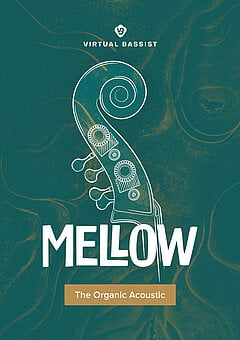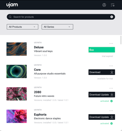5 Ways to Make Money Online in the Music Industry Right Now
With venues on hold, artists need to rely on the internet even more. Here’s a quick guide to help your musical skills to make money now.
NOVEMBER 1ST, 2020
Regardless of where you currently are in your musical career, there are steps you can take today to begin making a real income from your music. If you already have musical income flowing in, this should present a couple new angles that can help you grow it even further.
1. Selling your music or beats
People are still buying music online. To give yourself the best chance at making sales, publish your music to sites like Beatport and Bandcamp. Almost none of these sites are exclusive, meaning you can publish your music to as many as you want.
Focus on a single subgenre if possible (preferably one that’s increasing in popularity), and add your own unique take on it. If you can’t bring yourself to commit to a subgenre, find something that you do really well and use it in an unexpected way! (Perhaps you’re a classical pianist and add crazy solos to dubstep--the possibilities are endless!) If you need inspiration for finding your own sound, check out this article about John Massari’s musical journey.
If you’re better at creating beats than you are with full songs, consider releasing them on a site like BeatStars so other producers and artists can work them into their songs. You can sell each for $25 and even more, making this an excellent way to supplement your musical income.
2. Streaming
Platforms like Spotify, Apple Music, and Tidal pay you a very small fee each time someone plays a portion of one of your songs. It takes a lot of individual streams to create a significant income stream, but if you consistently put effort into it, many months down the line you may be happy you did.
Spotify in particular operates almost entirely around playlists for discovery purposes--reach out to the people who curate popular playlists in your subgenre / niche and ask if they feel a particular song of yours might fit well in their mix. Suggest specific songs and even point them to the best part (using minutes and seconds), and they’ll appreciate your efforts to save them time while providing them with new material to share with listeners.
3. Teaching music online
This is more applicable if you’ve already been actively creating and studying music for at least a few years. With so many people’s lives being more home-centered than ever, there’s an increased demand for learning the arts. There are many who want to express themselves creatively, and if your production or music theory skills are solid, there are a ton of people who would benefit from it.
Patreon is one of the more easily accessible platforms for this. It allows you to create tiered subscriptions where you offer downloadable content or services, and people can find you online. At the same time, don’t forget to search offline--friends of the family, friends of friends, and members of your community may be looking for someone to teach them music. Let them know you’re taking students!
4. Producing other artists’ songs
Maybe you enjoy producing music more than you do writing it. Always be on the lookout for collaboration opportunities; if a songwriter is releasing a song and needs help with sound design and polishing their mixes, they may want to pay you a work for hire fee. You typically forfeit royalties this way, but if your skills are solid, you can make a few hundred to a couple thousand dollars to finish a single track.
Project based work is a different mindset, and you might even prefer to work this way. You have guaranteed pay, more structure, and the freedom to focus on the aspects of music you excel most at. That said, there’s definitely a barrier to entry in that you must clearly demonstrate your production abilities and professionalism before an artist is willing to pay hundreds of dollars for you to produce their work. But once you have a collection of professionally produced songs, there’s nothing stopping you from pursuing this musical income source!
5. Creating sample packs
As you become a more accomplished sound designer, considering rendering out your sounds and offering them as sample packs. These can include percussion, growls, mechanical sounds, pads, atmospheric effects, and anything else a producer might want to drop into their session.
Bear in mind that this requires a significant level of organization, both in your file structure and file naming, since buyers need to be able to find and identify all the sounds in each pack you sell. All samples will also need to use the same sample rate and bit depth (use 48k, 24 bit unless there’s a specific reason you can’t; check out this article from PreSonus if these terms are new to you).
Wrapping up
There are many more ways you can start or increase your musical income, but hopefully these are enough to start giving you ideas that apply to your unique musical journey. You may find that you enjoy a more artist-centric approach and release your own music while growing your fanbase, or you might enjoy working on projects and getting paid on a work for hire basis. Regardless, you can’t know until you try as many avenues as you possibly can!
If nothing else, use this as an opportunity to determine how you enjoy making your musical income the most, and to see where you’re able to most efficiently generate new opportunities. No matter how much time passes, it’s okay if this changes. Your passion and your career are bound to undergo shifts. Go with what brings you the greatest success and fun, and focus on improving in the areas you’re already excelling in. Every skill you learn now is likely to be applicable even once things return to a new normal, and now is the best time to test what you can accomplish from the comfort of your own home!
Stay up to date
Sign up and we’ll send you an e-mail with product news and helpful stuff every now and then. You may unsubscribe at any time.
Defy Limits
We develop software solutions that enable people to create, consume and interact with music.



